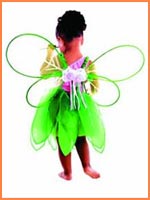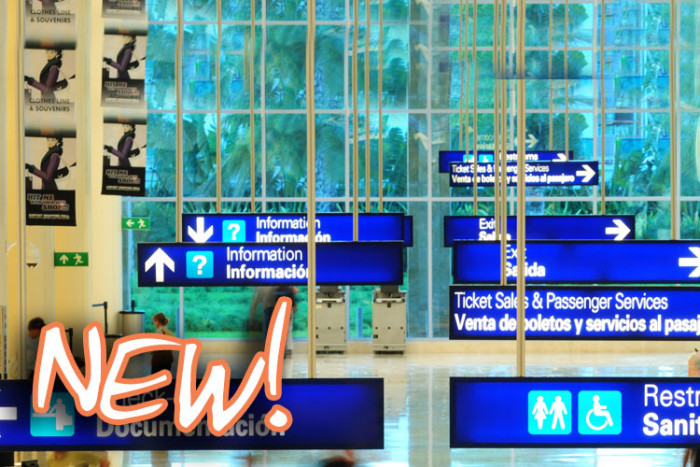|
Hearts Abroad, a fledgling US healthcare nonprofit from Colorado, has high hopes for the impact they will have in Cozumel. In June, they will bring an autism expert and a child psychologist to conduct a workshop for social workers, teachers and parents. Autism is a bio-neurological developmental disability that usually appears in children before the age of 3. |
Founders of Hearts Abroad, Ariana Iacobucci and her husband, Dr. Matthew Purvis, are organizing sessions to focus on a definition of autism, ways to identify it and ways to manage it in the classroom and home.
Hearts Abroad plans to establish an ongoing relationship with the special education school in Cozumel. "Over time we'll provide educational tools and adaptive equipment to support teachers and administrators by sharing the latest techniques and interventions available to improve the quality of life for autistic children," Iacobucci said.
With a background in international affairs and business development and now a stay-at-home mom, Iacobucci admits to being a born organizer.
"Hearts Abroad is already taking on a life of its own," she said. "There's great interest in our mission to provide health and wellness information and resources to underdeveloped communities outside the United States."
Purvis and Iacobucci and their two sons, Luke, 4, and Sean, 2, moved to Fort Collins in July 2007 when Purvis joined the staff of the Medical Center of the Rockies as a cardiologist. The move from Washington, D.C., was especially hard on young Luke, who found changes in his routine painfully disruptive.
"His world fell apart," Iacobucci said.
His mom, who'd had a vague sense that something was wrong since Luke's birth, knew it was time to investigate and take action. A late talker with a vocabulary of 50 single words by age 2 1/2, Luke seemed unusually sensitive to light and sound, indicative of problems with sensory integration.
Iacobucci began her quest on the Internet to get her questions answered. Back then she wasn't even sure what autism was, but as she pondered Luke's symptoms, she came to believe that he might be suffering from this increasingly common syndrome. It affects one in about 150 children, and by far the largest percentage is male. Symptoms vary and diagnoses range from high functioning to severe, causing retardation and inability to speak at all. Asberger's has its own set of symptoms but is classified on the autism spectrum.
Luke's diagnosis of "high-functioning educational autism" led Iacobucci to enroll him in preschool at the Barton Early Childhood Center. Progress began quickly as Iacobucci's learning curve accelerated through consultation with experts who discovered DNA abnormalities that explained Luke's condition and suggested vitamin and hormonal issues that needed to be addressed.
"I was curious," Iacobucci said. "I wanted to learn all I could. I needed answers."
Luke thrived in preschool and responded positively to techniques and interventions designed specifically for him. Iacobucci was given therapies and strategies she could employ at home. She works with Luke daily using picture schedules called PECS that help Luke to visualize a task and break it down into small steps.
"I've learned that if Luke gets upset, say, when we're in the car on the way to the grocery store, I can calm him by pausing to draw stick figures that describe exactly what he can expect and how he needs to behave. He also receives regular therapy from professionals and participates in a behavioral playgroup.
Iacobucci wondered what parents of autistic children do when they have no outside interventions.
"I realized how different our lives and Luke's would be if we didn't have these things to help," Iacobucci said.
It was at this point that Iacobucci went beyond the ordinary, beyond what most people would consider doing. She converted her internal query into action by making the decision to find a way to help those without resources to improve the lives of their autistic children.
She began by seeking out a suitable site - a place in need, not too far away - that was accessible and safe. She chose Cozumel, Mexico, and a survey trip confirmed her decision. She met with teachers, social workers and parents who expressed a need and openness to learning about autism. While some knew the term, they had no access to diagnostic tools and no techniques for treatment and intervention. They were anxious for any help that might be offered.
Hearts Abroad was born. Still small, and only months old, because of the vision of its founder and the unconditional support of her husband, the organization has a wide-open future.
When Ariana Iacobucci welcomes participants to the small conference room in a hotel she has reserved for the autism workshop on June 20 in Cozumel, she may well be starting something larger than she ever imagined. And she'll be living proof that a single person with the determination and the right set of skills can set in motion the means to help a whole lot of children lead happier and more productive lives.
Learn how you can help Turn Autism Around.
Edited version of a story by Libby James, reproduced with kind permission of the Fossil Creek Current Newspaper, Colorado, US.





